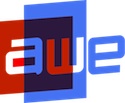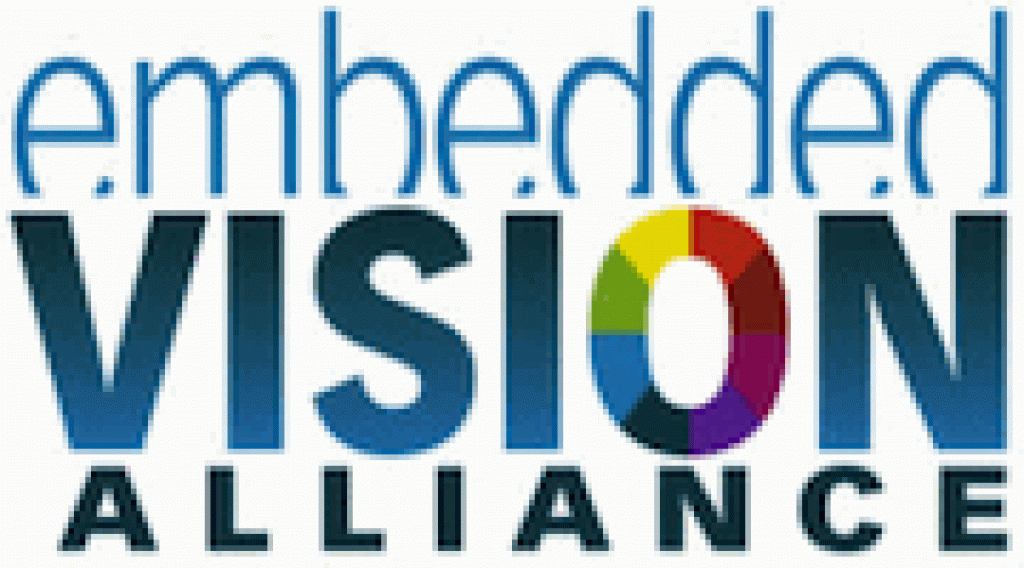|
Dear Colleague,
It’s almost here…the Embedded
Vision Summit — the only conference focused entirely on developing
products using computer vision — is less
than a week away, May 2-4 in Santa Clara, California. Head to
the Summit
area of the Alliance website and check out all of the presentations
and workshops listed there (several of which cover open standard
vision APIs), including the Deep
Learning Day on May 2, the keynotes
from Google and NASA on May 2 and 3, along with the Vision
Technology
Showcase, and the workshops
on May 4. And then register
without further delay for the Summit, as space is limited and seats
are filling up!
While you’re on the Alliance website, make sure to check out
all the other great new content there. It includes the first several
chapters of ARM’s “Guide
to OpenCL Optimizing Convolution,” a new technical reference manual
which gives implementation examples of algorithm acceleration using a
Mali Midgard GPU. See, too, “Deep
Learning Use Cases for Computer Vision,” a white paper developed by
research firm Tractica that covers vision processing opportunities in
various industry vertical markets. And the latest entries in a weekly
series of columns published in partnership with Vision Systems Design Magazine
discuss vision
for automotive applications (a topic also covered in a recent
blog post from CEVA), system
power savings, and autonomy
(also covered in a recent
blog post from Alliance founder Jeff Bier), along with several
new vision technology developments.
Newly published videos on the Alliance website include
technical presentations from DAQRI on augmented
reality for industrial productivity, from Kespry on autonomous
drones and computer vision for industrial data analysis, and from
Stanford University on techniques
for the efficient implementation of deep neural networks. Also make
sure you check out all the new demonstration video content, such as
AdasWorks’ demos of FPGA-based
ADAS and real-time
object segmentation; AMD’s demo of its
OpenVX implementation; BDTI’s demo of dense
optical flow; Cadence’s demos of traffic
sign recognition and a vision
processor-enhanced smartphone; and i-Abra’s demo of FPGA-based
deep learning for ADAS. Additional demonstration videos include
Infineon Technologies’ demo of time-of-flight
depth sensor technology, along with demos of a depth
sensor-equipped smartphone and tablet;
Movidius’ demos of depth
and deep
learning object tracking algorithms, image
signal processing quality, and a gesture
interface; Tend’s
demo of consumer surveillance cameras; and Texas Instruments demo
of various
vision-based ADAS applications.
Thanks as always for your support of the Embedded Vision
Alliance, and for your interest in and contributions to embedded vision
technologies, products and applications. If you have an idea as to how
the Alliance can better serve your needs, please contact me.
Brian Dipert
Editor-In-Chief, Embedded Vision Alliance
|
|
“An Update on Open Standard APIs for Vision Processing,” a
Presentation from Khronos
Neil Trevett, President of Khronos and
Vice President at NVIDIA, delivers the presentation, “Update on Khronos
Open Standard APIs for Vision Processing,” at the December 2015
Embedded Vision Alliance Member Meeting. Trevett provides an update on
recent developments in multiple Khronos standards useful for vision
applications.
NVIDIA Demonstrations of the Drive PX 2 In-vehicle Artificial
Intelligence Platform
Mike Houston, Distinguished Engineer at
NVIDIA, demonstrates the company’s latest embedded vision technologies
and products at the January 2016 Consumer Electronics Show.
Specifically, Houston demonstrates the various ADAS and autonomous
driving capabilities of the company’s new DRIVE PX 2 platform.
More Videos
|
|
A Quick Guide to Writing OpenCL Kernels for PowerVR Rogue
GPUs
This tutorial from Imagination
Technologies begins with an overview of OpenCL programming fundamentals
using a basic program, followed by an explanation of OpenCL execution
on Rogue GPUs. It provides the background to understand the programming
guidelines for the Rogue architecture, which are illustrated by using a
case study of an image filtering program. More
It’s Not About Where We’re Going, It’s How We Get There
There is no doubt that sooner or later,
cars will simply become robots that take us places, says videantis’
Marco Jacobs, but what will happen between now and then? Google follows
the “moonshot approach.” Their self-driving car project focuses on
developing fully autonomous vehicles. They say, “We believe that the
full potential of self-driving technology will only be delivered when a
vehicle can drive itself from place to place at the push of a button,
without any human intervention.” But car manufacturers live in a
different reality. More
More Articles
|
|
Embedded
Vision Summit:
May 2-4, 2016, Santa Clara, California
NXP
FTF Technology Forum: May 16-19, 2016, Austin, Texas
Churchill
Club 18th Annual
Top 10 Tech Trends: May 25, 2016, Santa Clara, California
What new tech trends
will emerge in the next several years? Find out at one of Churchill
Club’s most anticipated events of the year. Join us as we welcome some
of the leading, and most opinionated, technology and business
luminaries as they evaluate predictions for the years ahead.
Augmented World Expo:
June 1-2, 2016, Santa Clara, California
Now in its 7th year,
AWE USA is the largest event in North America exploring tech giving
people superpowers: augmented reality, virtual reality and wearable
tech. Join over 4,000 attendees, 200+ speakers and 200+ exhibitors in
the heart of Silicon Valley at the Santa Clara Convention Center.
Low-Power
Image Recognition Challenge (LPIRC): June
5, 2016, Austin,
Texas
Sensors
Expo: June 21-23, 2016, San Jose, California
Sensors Expo is the
only event focused on sensors and sensor-integrated systems. Experience
300+ sensors exhibitors, invaluable networking, and 55+ conference
sessions, including one from Embedded Vision Alliance founder Jeff
Bier. Use code EMBEDDED50 for
conference pass discounts or a free Expo Hall pass.

IEEE
Computer Vision and Pattern Recognition (CVPR) Conference:
June 26-July 1, 2016, Las Vegas, Nevada
IEEE
International Conference on Image Processing (ICIP):
September 25-28, 2016, Phoenix, Arizona
|










